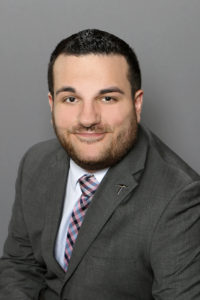Carlos Tarin, University of Texas at El Paso – Borderland Ecological Consciousness
 On University of Texas at El Paso Week: The southern border has been changed by many forces.
On University of Texas at El Paso Week: The southern border has been changed by many forces.
Carlos Tarin, assistant professor of communication, explains why we should be careful of the natural environment there.
Dr. Tarin’s research interests lie at the intersection(s) of organizational communication and the environment. Specifically, he is interested in exploring how organizations employ situated cultural discourses as a means of fostering environmental engagement. Much of his work draws on structuration theory and structurating activity theory as a way of understanding how organizational practices become routinized and codified. His dissertation research focused on Rare, a non-profit environmental organization that sponsors conservation and sustainability projects in developing tropical and sub-tropical nations. He interrogated how the organization uses communication to, first, sustain commitment and identity internally and, second, to instigate change in the complex social, political, and cultural contexts in which the projects are deployed. This line of research has far reaching consequences for how we conceptualize and theorize issues such as organizational identity, organizational transformation, and sustainability.
Borderland Ecological Consciousness
The international boundary between the United States and Mexico has become increasingly politicized in recent years. Whether focused on international trade or the humanitarian crisis caused by mass migration, the current discourse frames the border in oppositional terms.
My research focuses on how identity is communicatively constructed in relation to the environment along the U.S.-Mexico border. The border is a space where languages, meanings, and cultures collide, but it also, importantly, a unique ecosystem. In my work, I draw on Chicana social theorist and philosopher Gloria Anzaldúa to describe what I call borderland ecological consciousness. Borderland ecological consciousness is a way of thinking and engaging with the natural world that attempts to collapse the artificial boundaries that position nature as something that exists “out there” in opposition to human culture. How aware are we of our relationship with a shifting environment, and how does our communication about the environment change accordingly?
In my work, I focus on how forces like globalization, capitalism, and colonialism have left an indelible mark on the ecosystem along the border. By centering toxicity as a common thread, I examine various locations in and around El Paso, TX such as the demolished Asarco copper smelting facility, the colonias, and the Rio Bosque Wetlands to understand how we communicatively construct meanings about the natural world and the damage that development has caused.
Ultimately, I argue that we should be guided by an ethic of care that promotes ecological citizenship to transform the problematic social, economic, and political systems that wreak havoc on the environment. Like all borders, the boundaries that we have created between human culture and the natural world are socially constructed and can be re-imagined to promote the mutual benefit of humans and ecosystems alike.


